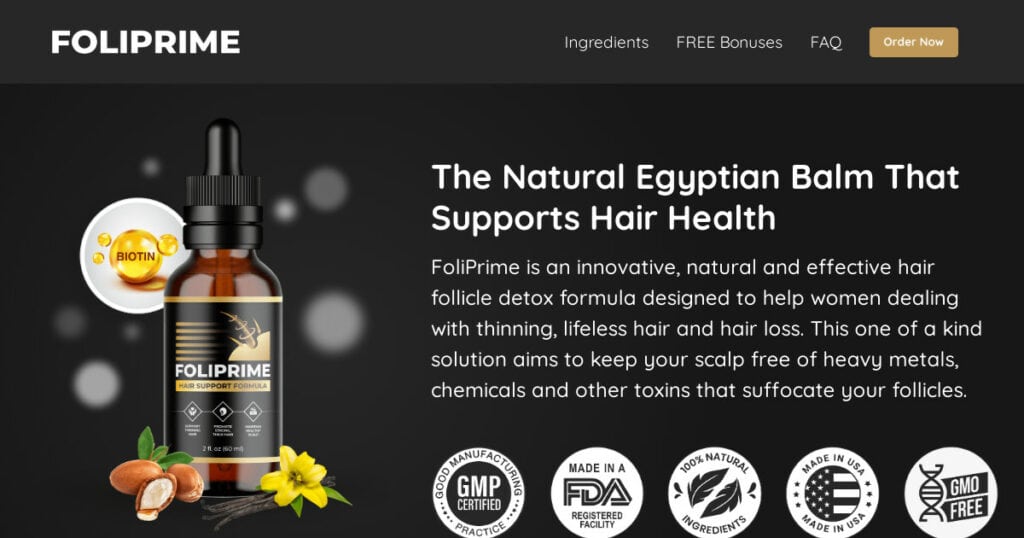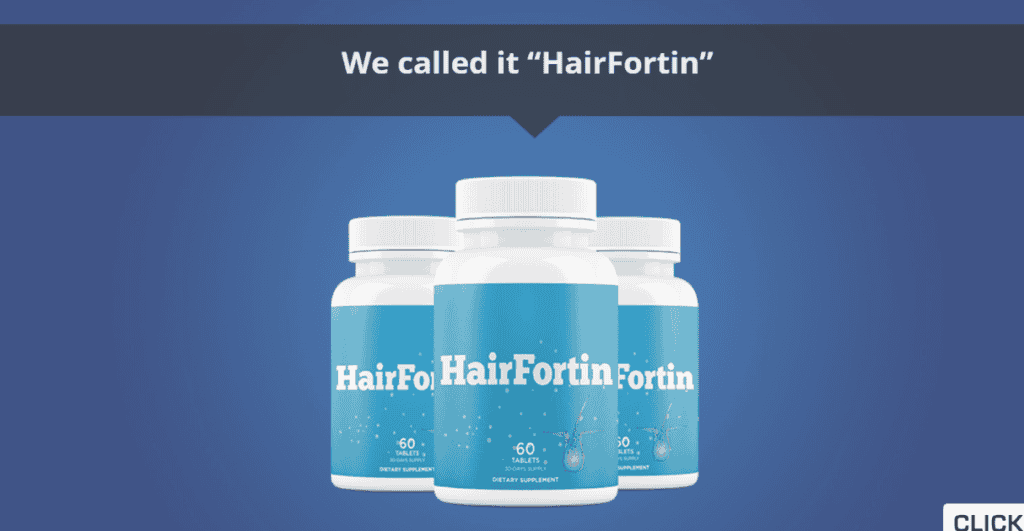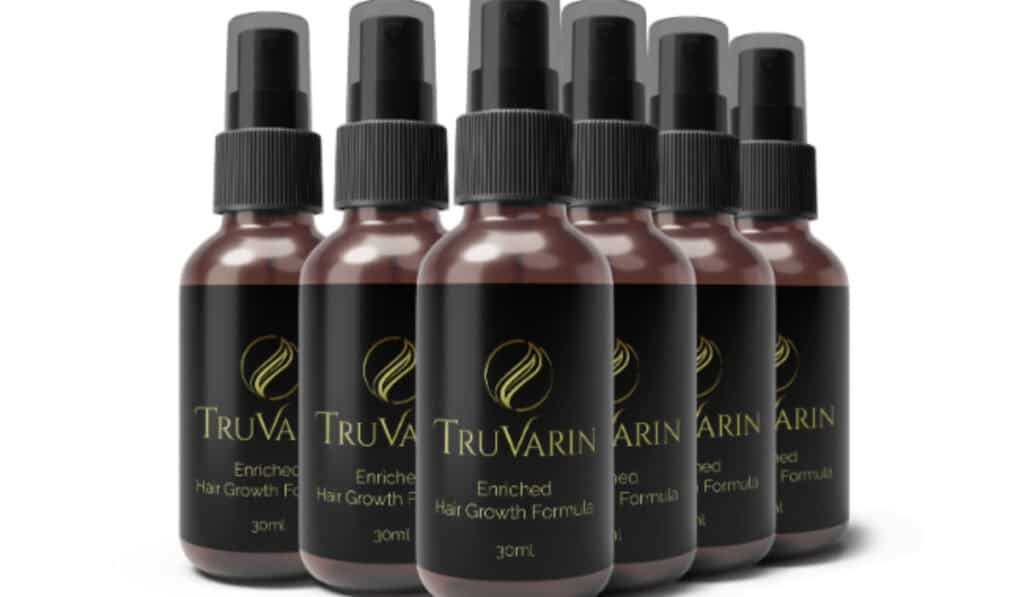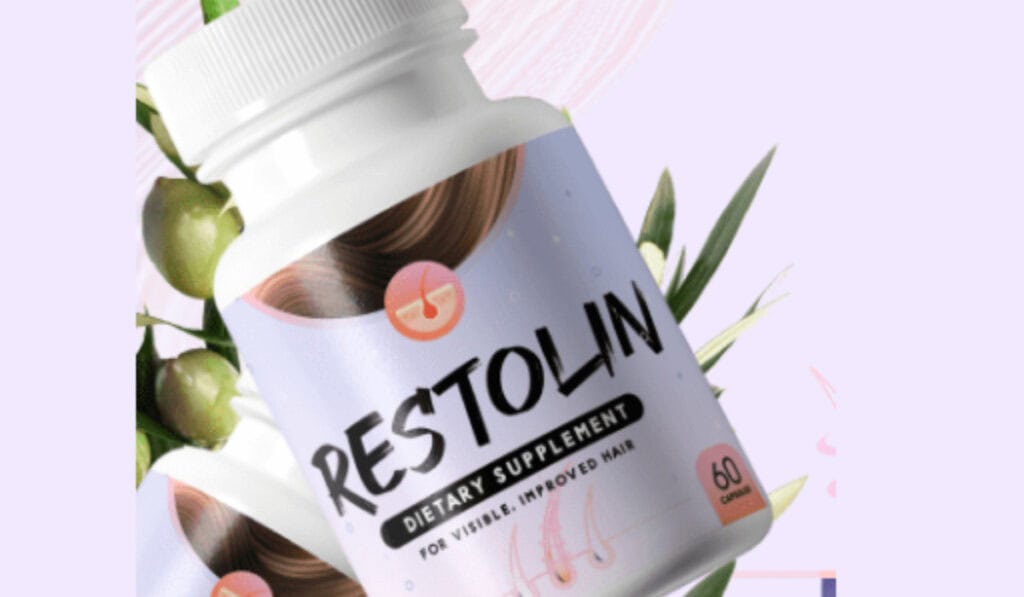A Comprehensive Guide
Exploring the world of herbal remedies for hair growth opens up a treasure trove of natural solutions. With an emphasis on ingredients that are both gentle and effective, this guide aims to provide you with a variety of options, all medically reviewed, to nurture your scalp and enhance hair growth. From oils extracted from the earth to ancient practices passed down through generations, the focus is on harnessing the power of nature to address common hair concerns.
Whether you’re experiencing thinning hair or simply seeking to improve the health and appearance of your locks, this guide offers a comprehensive look at how herbal remedies can play a pivotal role. By understanding how these natural solutions work and integrating them into your hair care routine, you can embark on a journey towards achieving fuller, healthier hair.
Understanding Hair Loss: Causes and Concerns
Hair loss can be a distressing experience, affecting not just your appearance but also your confidence. It stems from a variety of causes, including genetics, hormonal changes, and lifestyle factors. Recognizing the root cause of hair loss is the first step towards finding an effective solution. This section will delve into the common reasons behind hair thinning and loss, offering insights into how you can address these issues and promote hair growth.
The Science Behind Hair Thinning and Loss
At the core of hair thinning and loss is the disruption of the hair growth cycle. Effective treatments for alopecia focus on targeting these underlying issues to encourage hair regeneration.
Common Culprits and How to Address Them
Various factors contribute to hair loss, including alopecia areata, an autoimmune disorder where the body attacks its hair follicles. Thyroid disease can also lead to hair thinning, as can androgenic alopecia, a genetic condition. Tight hairstyles that pull on the hair can further exacerbate hair loss. Addressing these conditions often requires a combination of medical treatment and lifestyle changes to mitigate their impact on hair health.
The Power of Herbs for Enhancing Hair Growth
Herbal extracts offer a promising avenue for supporting hair growth, utilizing the natural potency of plants to nourish the scalp and follicles.
Rosemary Oil: A Natural Stimulant for Follicles
Rosemary oil is celebrated for its ability to stimulate hair growth, improve scalp health, and enhance circulation to the scalp. Its anti-inflammatory properties, when combined with a carrier oil like jojoba oil, can create a potent blend for follicle stimulation. Always consult a healthcare provider to ensure it’s the right choice for your needs.
How to Apply Rosemary Oil for Best Results
To harness the full potential of rosemary oil, mix a few drops with a carrier oil such as jojoba oil. Gently massage this blend into your scalp for a few minutes to stimulate circulation and encourage nutrient absorption. For best results, leave it on for at least an hour or overnight before washing it out with a mild shampoo. This practice, done consistently, can significantly enhance hair growth and scalp health.
Aloe Vera: Soothing and Moisturizing Scalp Treatment
Aloe vera is renowned for its ability to soothe the scalp and moisturize hair. Its natural properties can help treat alopecia by reducing scalp inflammation and promoting a healthy environment for hair growth.
The Dual Action of Aloe Vera on Scalp Health and Hair Vitality
Applying aloe vera gel directly to the scalp can soothe irritation and provide deep hydration, crucial for maintaining scalp health and hair vitality. Its enzymes help remove dead skin cells clogging hair follicles, allowing better penetration of nutrients necessary for hair growth. Regular use of aloe vera can result in healthier, more resilient hair.
Peppermint Oil: Boosting Circulation for Hair Growth
Peppermint oil is known to promote hair growth by enhancing blood circulation to the scalp. Its tingling sensation signals the invigoration of the scalp’s blood vessels, encouraging stronger hair growth.
Simple Methods to Incorporate Peppermint Oil Into Your Routine
Incorporating peppermint oil into your hair care routine is straightforward. Mix a couple of drops with a carrier oil like coconut or jojoba oil and massage it into your scalp. This not only promotes hair growth but also provides a refreshing, cooling sensation. Be aware, though, that more research is needed to fully understand its benefits, and some people might experience allergic reactions to essential oils, including peppermint oil.
Lavender: Calming and Promotive for Hair Growth
Lavender oil, with its calming properties, can also promote hair growth. It’s especially beneficial in creating a soothing environment that supports healthy hair development.
Crafting a Lavender Oil Scalp Massage Blend
For a relaxing scalp massage that promotes hair growth, blend a few drops of lavender oil with a carrier oil. This mixture, when massaged into the scalp, can stimulate circulation, encourage hair growth, and provide a soothing effect. Scalp massages have been shown to be an effective way to promote hair growth and health.
Additional Natural Oils and Their Benefits
Exploring the realm of natural oils reveals a variety of options, each with unique properties and potential side effects. These oils, part of complementary and alternative medicine, offer a holistic approach to hair care and growth.
Coconut Oil: Deep Conditioning for Strength and Shine
Coconut oil is a versatile option for hair care, known for its deep conditioning properties. It penetrates the hair shaft, providing moisture, reducing protein loss, and protecting hair from damage.
Weekly Coconut Oil Hair Masks for Repair and Growth
Applying a coconut oil hair mask weekly can deeply condition your hair, leading to enhanced strength and shine. This natural oil penetrates your hair shafts, repairing them from the inside out. It’s also effective in reducing protein loss, which is essential for healthy growth. Warm the oil slightly, apply it from roots to ends, and leave it in for at least an hour or overnight for best results. Remember to cover your hair with a shower cap to lock in the moisture and heat, enhancing the mask’s effectiveness.
Pumpkin Seed Oil: A Hidden Gem for Hair Density
A 2014 study highlighted the potential of pumpkin seed oil in increasing hair count, making it a promising option for those looking to improve hair density. Its rich zinc content supports hair growth by nourishing the scalp and follicles.
Supplementing with Pumpkin Seed Oil for Maximum Benefits
For those aiming to enhance hair thickness and strength, incorporating pumpkin seed oil into your routine might be beneficial. This oil, rich in nutrients and antioxidants, has been shown to support hair growth. Taking it as a supplement or applying it directly to the scalp can provide your hair with the nourishment it needs for optimal growth. Start with a small amount to gauge your scalp’s reaction before making it a regular part of your hair care regimen.
Jojoba Oil: Mimicking Scalp Sebum for Healthier Hair
Jojoba oil’s chemical composition closely resembles that of scalp sebum, making it an ideal moisturizer for maintaining scalp health and hair texture.
Daily Jojoba Oil Treatments to Enhance Hair Texture
Using jojoba oil daily can significantly improve your hair’s texture and health. Its similarity to scalp sebum allows it to naturally condition the hair without leaving it greasy. Apply a few drops to your scalp and hair, massaging gently to ensure even distribution. While jojoba oil is generally safe, it’s important to start with a small amount to ensure you do not develop an allergic reaction. Regular use can lead to visibly healthier and more manageable hair.
Unconventional Herbal Solutions for Hair Growth
Exploring unconventional herbal remedies like onion juice and ginseng offers new avenues for promoting hair growth and addressing issues like thinning hair.
Onion Juice: A Surprising Growth Enhancer
Rich in sulfur, onion juice has been found to effectively promote hair growth, making it a potent alternative to traditional treatments like minoxidil and finasteride.
Preparing and Applying an Onion Juice Hair Rinse
To harness the benefits of onion juice for hair growth, blend a fresh onion and strain the juice. Apply the juice to your scalp and hair, leaving it on for at least 15 minutes before washing it out with a mild shampoo. This treatment can help improve circulation to the hair follicles, encouraging growth. While the smell may be strong, the potential for promoting hair growth makes it worth trying. For best results, use this rinse once a week.
Ginseng: Revitalizing Roots for Improved Growth
Ginseng serves as a powerful herbal remedy known to revitalize hair roots and promote healthy growth.
Integrating Ginseng Into Your Hair Care Regimen
Incorporating ginseng into your hair care routine can stimulate your scalp and enhance hair growth. You can use ginseng-infused shampoos or serums, or even prepare a ginseng tea rinse to apply to your scalp. The active components in ginseng help in nourishing the follicles and scalp, potentially improving hair thickness and growth over time. Consistent use is key to seeing results, so include ginseng in your regular hair care practices to reap its benefits.
Horsetail: Silica-Rich for Strength and Elasticity
Horsetail, with its high silica content, is known for its ability to enhance hair strength and elasticity.
Brewing a Horsetail Extract for Topical Application
To create a horsetail extract for your hair, simmer dried horsetail in water for about 20 minutes. Once cooled, apply this solution to your scalp and hair, leaving it on for at least 30 minutes before rinsing. This treatment can help reinforce hair strands, promote hair growth, and improve overall scalp health. The silica in horsetail is crucial for both strength and elasticity, making your hair less prone to breakage.
Lifestyle Adjustments Supporting Hair Growth
Making lifestyle adjustments can significantly support hair growth, enhancing the effectiveness of herbal remedies and treatments.
Scalp Massage: Encouraging Blood Flow to Follicles
Scalp massages are a simple yet effective way to encourage hair growth by boosting blood flow to the hair follicles.
Techniques and Oils for Effective Scalp Massage
For an effective scalp massage, use gentle, circular motions with your fingertips to stimulate blood flow. Incorporating essential oils like rosemary or lavender can enhance the experience and add additional benefits for hair growth. These massages not only encourage hair growth by improving circulation but also relieve stress, which can be a contributing factor to hair loss. Aim for a scalp massage at least once a week to support healthy hair growth and scalp health.
Optimizing Nutrition: Protein, Iron, and Vitamins
To stimulate hair growth, a balanced diet rich in vitamins and minerals is crucial. Proteins, packed with amino acids, serve as the building blocks for hair, while iron helps in carrying oxygen to hair follicles, promoting their health. Nutrient deficiencies can lead to weakened strands and hair loss, emphasizing the importance of a nutrient-rich diet for maintaining healthy hair.
Essential Nutrients and Their Sources for Hair Health
For luscious locks, focus on incorporating foods high in specific nutrients. Lean meats and leafy greens are excellent sources of protein and iron, vital for hair strength and growth. Eggs, berries, nuts, and fish are packed with vitamins and omega-3 fatty acids, which prevent hair loss by nourishing the scalp and hair follicles. A diverse diet will ensure you’re getting the wide range of vitamins and minerals essential for promoting healthy hair growth.
When to Seek Professional Advice
If you’re experiencing significant hair loss or thinning, it’s wise to consult a healthcare provider. While herbal remedies and nutritional adjustments can offer benefits, underlying health conditions could be at play. A medical professional can provide a comprehensive evaluation and potentially uncover health issues contributing to hair loss, ensuring you receive appropriate care and treatment.
Recognizing Signs That Require Medical Attention
Noticeable thinning, bald patches, or excessive hair shedding are signs that should prompt a visit to a healthcare provider. These symptoms could indicate conditions like alopecia areata or scarring alopecia, requiring professional diagnosis and treatment.
Consulting Healthcare Providers for Persistent Issues
For ongoing hair loss issues, a healthcare provider can offer invaluable guidance. They can assess your situation, rule out serious conditions, and recommend treatments or lifestyle changes. Sometimes, they might suggest blood tests to check for nutrient deficiencies or hormonal imbalances, providing a clear path towards addressing your hair loss concerns.
The Herbal Approach: Crafting Your Personal Hair Growth Regimen
Creating a hair care regimen that incorporates herbal remedies can be a game-changer for hair growth. Herbs like rosemary and peppermint oil stimulate hair follicles, while oils such as castor oil can also contribute to hair density and health. However, be mindful of potential side effects and consider consulting a professional in complementary and alternative medicine to tailor a safe and effective approach.
Combining Herbal Remedies for Synergistic Effects
Using a combination of herbal remedies can have synergistic effects, enhancing your hair growth efforts. For instance, mixing castor oil with peppermint oil can maximize scalp nourishment and stimulate hair follicles more effectively than using each oil independently.
Tailoring Treatments to Individual Needs and Responses
Each person’s hair and scalp are unique, making it essential to customize your hair growth treatments. For conditions like alopecia areata or scarring alopecia, specific herbal formulations may offer relief. Pay attention to how your hair responds to different treatments and adjust your regimen accordingly, possibly with the guidance of a healthcare professional experienced in dermatology.
Embracing the Journey: Patience and Consistency
Embarking on a natural hair growth journey requires patience and consistency. Herbal treatments and nutritional improvements take time to show results. It’s important to set realistic expectations and stay committed to your regimen, understanding that hair growth is a gradual process.
Setting Realistic Expectations and Tracking Progress
Understand that significant hair growth won’t happen overnight. Setting realistic goals and tracking your progress can help manage expectations and motivate you to continue your efforts.
Celebrating Milestones and Adjusting as Needed
Celebrate every sign of improvement, no matter how small, as it’s a step towards achieving your hair growth goals. If you encounter setbacks, don’t hesitate to adjust your approach. Sometimes, a simple change in your regimen can make a big difference in your results.
Conclusion: Harnessing Nature’s Bounty for Lush Locks
Embracing herbal remedies and a nutrient-rich diet offers a natural path to improving hair health and promoting growth. With patience, consistency, and a willingness to experiment and adjust, you can harness nature’s bounty for lush, healthy locks. Remember, maintaining a balanced diet and incorporating natural ingredients into your hair care routine can significantly impact your hair’s health and appearance.
Final Thoughts on Natural Hair Care and Maintenance
A balanced diet, rich in essential nutrients, and the use of natural ingredients like oils and herbs for hair growth, can significantly strengthen hair follicles and promote healthy hair growth. Olive oil, known for its moisturizing and anti-inflammatory properties, is just one example of a natural remedy that can be applied to the scalp for improved hair health.
Continuing Education and Experimentation for Optimal Results
To achieve the best results for your hair, it’s crucial to continue learning and experimenting with different natural remedies and treatments. While mineral oil is commonly used in hair care products, exploring plant-based oils and ingredients can offer healthier alternatives without the harsh chemicals. Stay open to trying new methods and ingredients to find what works best for your hair type and concerns.





